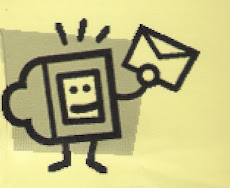TWO TUESDAY SUMMER
CLASSES
1. Healthy Computers. New class. Learn to clear the problems from your current
computer and keep it working.
2. Tablets. iPad and Kindle. What’s different. A user
community.
Healthy Computers – next class in July
·
A preview of wicked,
mischievous news. What the North Koreans did two years ago, what some guy with
a fixation on a local stripper named Melissa wanted to immortalize, what
happened one Tuesday night to Microsoft, AOL and a host of others which lasted
for three days. More commonly called funny stuff.
·
Now, the change from
mischief to corporate extortion.
·
New vocabulary: virus,
antivirus, malware, spyware, phishing, DOS, botnet, Trojan Horse, sniffing,
robots – an alphabet soup of new words to “laugh while you’re crying”.
·
YouTube videos showing the
chaos and mischief in living color. This time it is slightly different, you’ll
know what it is called.
·
Notable solutions. Software
that you can download for free.
·
Practical tasks to defend
yourself. Check the BOTTOM of this page for examples.
Tablets: iPads and Kindles – Monthly class
·
The iPad 3 is announced to
be release sometime this week month, complete with rumors of changes to screen
pixels, quad processor, better camera, SIRI, etc. Does it make it better? How
to keep an eye for the prices of iPad1 and iPad2.
·
The Kindle Fire is seen as
1/3 the price for everything but the cameras, the microphone, the Blue tooth,
with a size of 7” vs 10”
·
Impact of the Thailand
floods: world’s supply of hard disk drives dwindles
Do Something Quick - What
you can do immediately:
·
Disconnect
the LAN cable or turn-off the wireless.
·
Change passwords
·
Use strong 8 character passwords:
uppercase + lower case + numbers + non-ASCII characters
·
Turn on your firewall
·
Keep a minimum of three types of antivirus software running and updated:
·
Avast or AVG
·
Malwarebytes
·
SD Spybot
·
Don’t reply or open emails
to “innocuous inquires” especially from websites you don’t know or don’t
normally use.
·
Don’t use the same password
in your web buying sites as your Windows’ password.
·
Don’t leave your computer
powered-on when you are not using it. TURN
IT OFF.
·
Run your antivirus daily (or
setup the scheduler to do this). Be sure to update your antivirus, Malwarebytes
and SD Spybot.
·
Be suspicious, be vigilant,
recognize what is normal vs. what is unusual.
·
Don’t leave passwords or credit
card/social security numbers on the net or on your monitor.
It is too late to put duct tape on your teddy
bear’s mouth!



